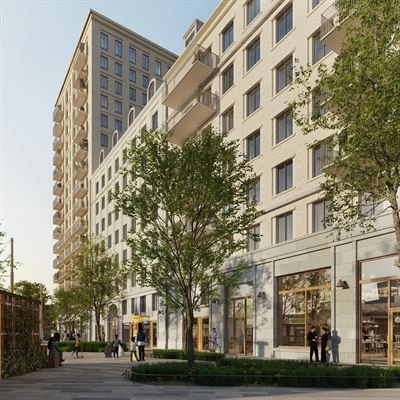It’s one of those travel tips nobody ever tells you—but once you hear it, you’ll never check into a hotel the same way again.We spend so much time comparing hotel prices, obsessing over breakfast buffets, or trying to score the perfect sea-facing room. But most of us overlook a question that could be far more important: Which floor is the safest to stay on in a hotel?Turns out, it matters. A lot.Whether you’re a frequent business traveler, a solo female tourist, or just heading on a family holiday, your room’s location could impact your safety in emergencies, your risk of theft, and even your chances of getting help fast.So let’s break it down: why floor selection is not just about the view—and what the experts say you should do the next time you check in.
So… what’s the safest floor?
According to security experts, the safest floors to stay on are between the 3rd and 6th floors. Not too high, not too low—right in the sweet spot.Here’s why:Too low? You’re easier to access from outside. Think break-ins, especially in hotels that are near busy streets or surrounded by trees, scaffolding, or parking lots.Too high? You’re out of reach for fire truck ladders, which typically max out around the 7th floor in many countries.Being somewhere in the 3rd to 6th-floor range offers the best mix of security from intruders and accessibility in case of emergencies.But that’s just the start.
What makes the lower floors risky?
When it comes to hotel room break-ins, ground floor rooms are the most vulnerable. Many thieves target rooms near the lobby or ones that can be accessed directly from outside.In motels or resorts with exterior corridors, a thief can blend in as a pedestrian or staff member and walk right up to a room’s window or patio door. No elevator, no cameras, no questions asked.Even in fancier hotels, ground and first-floor rooms often face parking lots, making them easy targets for a quick smash-and-grab.The 2nd floor isn’t immune either. Burglars are surprisingly agile. A ledge, a pipe, or even a stack of furniture from a nearby service area can become an access point.Moral of the story? If the windows open and you’re within climbing distance from the ground, it’s worth reconsidering.
But what if there’s a fire?
In a real fire, you’ll be depending on stairwells and fire escapes beyond that height. And if you’re not physically fit, carrying luggage or children, or managing a disability, descending 15+ flights of stairs is no joke.That’s why fire safety experts usually recommend staying on the lowest floor possible that’s above ground level, especially in older buildings with limited safety features.Pro tip: Always check where the nearest stairwell and exit signs are when you check in. Make a mental note. In a smoke-filled hallway, visibility drops to near zero.
Higher floors = Slower emergency response
Let’s be honest: hotel emergencies aren’t just about fires. They can be medical too. And when you’re having a health emergency in your room, every second counts.Imagine needing urgent help on the 24th floor while the elevator is slow or out of service. Even if paramedics are on site, getting to you will take longer. Every floor they climb is time ticking.The closer you are to the mid-range floors, the quicker it is for staff or emergency teams to reach you—whether it’s for a twisted ankle, a medical crisis, or a late-night noise complaint gone wrong.
What about earthquakes and natural disasters?
If you’re staying in an earthquake-prone area, being lower down can help. Buildings are designed to sway during tremors, and the higher you are, the more you’ll feel it—and the harder it may be to evacuate.On the flip side, if you’re near the coast or in a flood-prone area, the ground floor might put you at risk during storms or tsunamis. In such cases, mid-level floors offer better protection from flooding without putting you too high to escape in a fire.
Solo travelers & women: Think twice about the floor and the room
If you’re a solo traveler—especially a solo woman traveler—floor and room choice can be your first layer of security.Here’s what seasoned female travelers often recommend:
- Request a room near the elevators, not at the far end of the hallway. Long, isolated corridors make you more vulnerable.
- Avoid rooms with connecting doors unless you specifically requested it.
- Check that your deadbolt and door viewer (peephole) work properly.
- Some travelers even put a rubber doorstop under the hotel door while sleeping for extra peace of mind.
Pro tips for booking the safest hotel room
Now that you know the best floors to aim for, here are a few bonus tips to keep your stay safe and sound:
- Call ahead and request a specific floor when booking. Don’t leave it to chance at check-in.
- Use the hotel safe for valuables. Even better: travel with a portable locking safe.
- Don’t broadcast your room number aloud at check-in or in public areas.
- Use the latch and deadbolt when inside the room, always.
- If you feel unsafe, don’t hesitate to ask for a room change. A good hotel will honor that.
So, what’s the worst floor to stay on?
That would be a tie between:The ground floor, because of break-insAnd the top floors, due to emergency accessibilityIf you’re a nervous traveler, have health concerns, or just prefer to play it safe, the 3rd to 6th floor is your safest bet. You’ll be high enough to deter casual intruders, low enough for emergency access, and likely closer to key amenities like fitness centers and restaurants too.
Safety isn’t paranoia—it’s smart travel
Staying in a hotel should be about rest, relaxation, and room service—not worry. And while no floor is ever 100% “danger-proof,” being aware of your surroundings and making small choices (like what floor you’re on) can make a big difference.You don’t need to pack a fire escape ladder or sleep with one eye open. But a little strategy goes a long way. Think of it as smart travel.Disclaimer:This article is intended for general informational purposes only and does not constitute professional safety or emergency advice. While efforts have been made to ensure accuracy, hotel layouts, building codes, and emergency protocols may vary widely across regions and properties. Always consult local authorities, hotel staff, or certified safety professionals for specific concerns. Readers are encouraged to use their discretion and judgment when applying the tips provided.



